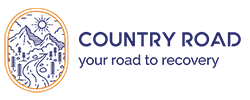The relationship between trauma and addiction is thoroughly complex and well-documented. There exists a strong link between traumatic experiences and the development of addiction disorders. Unfortunately, these co-occurring disorders can make recovery a difficult goal to attain if not treated correctly. This blog will explore the connection between trauma and substance abuse and delve into healing and recovering from co-occurring disorders.
The Correlation Between Trauma and Addiction
People who have experienced traumatic events often end up turning to drugs and alcohol to self-medicate. In an attempt to cope with poor sleep, bad memories, or emotional pain, they end up spiraling into addiction. This in turn exacerbates the trauma. Individuals engaged in substance abuse are more likely to experience traumatic events creating a cycle of trauma, addiction, more trauma, more addiction, ad infinitum. The means of temporary relief are now the source of distress.
Breaking the Cycle: Recovery from Co-Occurring Disorders
In the treatment of co-occurring disorders the term dual-diagnosis is used interchangeably. Dual-diagnosis programs achieve long lasting healing by treating both trauma and addiction simultaneously. Employing an approach known as trauma-informed care, addiction is viewed as a symptom of trauma; a coping mechanism developed in reaction to traumatic experiences. Trauma-informed treatment is comprised of the following:
Professional Assessment: A clinical team does an evaluation on the individual to ascertain their medical, psychological, and traumatic history. Compiling this information allows the treatment team to put together a personalized action plan for each client. This plan will address their specific needs.
Integrated Treatment: The specifics of each treatment plan varies from person to person. They will all have a holistic common thread however. Making use of multiple treatment modalities, from psychotherapy to pharmacotherapy and everything in between. The clinical team will employ the approaches they feel most helpful to the client. Treating co-occurring disorders requires a program that is equipped to provide multiple avenues of treatment.
Coping Strategies: Those struggling with co-occurring trauma and addiction learn healthy coping techniques to manage their trauma responses and replace the need for substances. Therapies like CBT and DBT can be effective in emotional regulation. Practical skills like mood management, active coping and relaxation techniques are also helpful in focusing ones attention away from stress reactions and towards achieving a sense of calm.
Support System: Building a sturdy support system is crucial to the healing process of trauma and addiction. Relying on a group of people that have undergone similar circumstances decreases feelings of loneliness, isolation, and shame and promotes solidarity and accountability. Long-term recovery depends on community.
Self-Care: Co-occurring addiction treatment emphasizes self-care. Learning to prioritize one's health and well-being is important to the healing process. When healthy and in good-spirits, the temptation to relapse is lessened and individuals are less likely to put themselves in potentially harmful situations.
While the journey to healing from co-occurring trauma and addiction can seem overwhelming, it is possible with the right treatment. Finding a recovery program that understands dual-diagnosis treatment and is experienced working with trauma is essential. Call Country Road Recovery today if you’re ready to free yourself from the past and start the journey to a healthier, happier future. Break free from the cycle of trauma and addiction.


